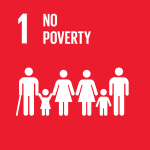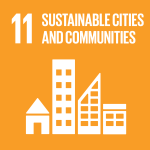
Photo: SGP-UNDP Bhutan
View this blog as a photo essay here.
By Netra Sharma, Project Manager at UNDP Bhutan; Tshering Yangtsho, Project Associate at UNDP Bhutan; and Liam Fee, Climate Change Adaptation Specialist, National Adaptation Plans at UNDP
In Bhutan, water plays a crucial role in the economy and society, with the country heavily reliant on its water resources for agriculture, hydropower generation, and drinking water. Climate change, however, poses a significant threat to the country's abundant supplies. Changes in precipitation patterns, melting glaciers, and more frequent climate-induced hazards like floods and landslides are all expected to affect the availability and quality of freshwater.
Understanding and addressing the challenges facing the water sector in the context of climate change is critical for ensuring the sustainable development of Bhutan and the well-being of its people.
To address the issues, the Royal Government of Bhutan, with the support of UNDP, has undertaken a detailed national assessment of climate change impacts on the water sector, as part of the country’s project 'Preparation of a National Adaptation Plan (NAP) for Bhutan, with a focus on the water sector' funded by the Green Climate Fund.
By identifying the potential impacts of climate change on the availability and quality of water in Bhutan, and strategies to manage and adapt to these impacts, the assessment has provided the foundation for climate-resilient sector-wide water management into the future.

Photo: Tenzin Wangchuk/UNDP Bhutan
HOW BHUTAN DELIVERED THIS ASSESSMENT
First, Bhutan conducted a comprehensive assessment of the water sector and water-dependent sectors to identify adaptation options. The assessment considered cross-sectoral issues and examined the nexus between climate change impacts and sectors such as health, energy, and food.
The results of the assessment were shared with sector representatives and local government officials who provided input. Based on this, a final report summarizing the risks of climate change to water resources was produced, outlining clear priorities for adaptation.
The report will serve as a critical tool for decision-makers in Bhutan to ensure that water resources are managed in a way that is both sustainable and climate-resilient.
WHY SECTOR-WIDE ASSESSMENTS ARE IMPORTANT
The assessment recognized the critical role that water plays in ensuring the availability of food, energy, and sanitation, and highlighted the need for urgent action to safeguard Bhutan's water resources. Through this assessment, Bhutan aims to build its resilience to the impacts of climate change and ensure the sustainable development of the country's water sector.
Bhutan identified a range of adaptation options, including ecosystem-based adaptation – such as the restoration of degraded watersheds and the promotion of sustainable land management practices – and physical infrastructure – including climate-proof water supply systems, dams, and irrigation – as well as the potential for public-private partnerships for water resource management.
The focus has been on transformational adaptation which emphasizes a cross-sectoral approach to planning, a recognition of the interconnections between water, energy, and food systems, and avoidance of ‘maladaptation’ which occurs when poorly made decisions for investment and projects lead to adverse impacts.
By exploring various adaptation options, Bhutan aims to ensure the sustainable development of the country and its people in the face of climate change.
WHAT HAPPENS NEXT
Bhutan's water assessment has made several important advances that will help the country to better understand and manage its water resources.
The water assessment fed into a further study that conducted hydrological modelling. Together, these studies provide critical information on how climate change is likely to impact Bhutan’s water resources in the coming decades.
Based on the recommendations from the assessments conducted under the UNDP-supported NAP Readiness Project, Bhutan has successfully mobilized resources through the Global Environment Facility-Least Developed Countries Fund and the Adaptation Fund for two projects for addressing water scarcity in western Bhutan and is now formulating another project for the six districts in eastern Bhutan, which will be submitted to the Green Climate Fund.
The findings from the risk assessment have also guided transformational adaptation in water sector through the National Flagship Programme on water and the ‘water roadmap’. The findings and data collected will be housed on Bhutan’s Climate Platform, and contribute to future reports, assessments, and funding proposals.
This comprehensive approach to water resources management is a testament to Bhutan's commitment to sustainable development and is likely to serve as a model for other countries in the region facing similar challenges. The approach sets an important precedent for other countries in the region to follow, as they too face significant challenges related to water resources management and climate change adaptation.
Bhutan's system-wide assessment of their water sector has provided an essential evidence base for the preservation of ecosystems, which is crucial in enhancing the resilience of water resources and identified strategies that can guide the country in its future water management efforts. Building a resilient water sector will benefit Bhutan's people, their livelihoods, agriculture, health and much more with sustainable access to water resources.
As well as supporting Bhutan in its adaptation efforts, UNDP is also working with the world’s first carbon-neutral country to maintain its Net Zero ambition, to advance inclusive, gender-responsive climate action, and to protect Bhutan’s precious ecosystems and biodiversity. Learn more.





